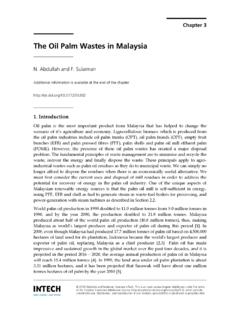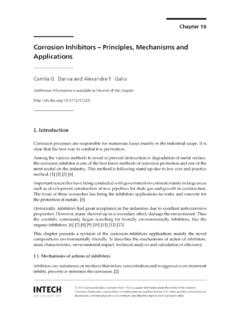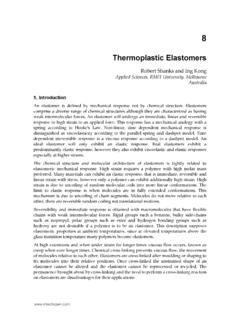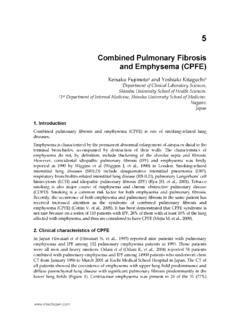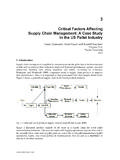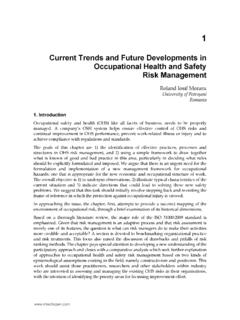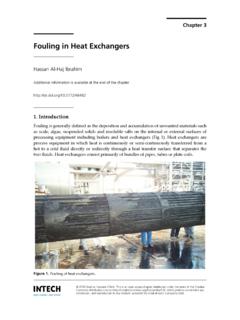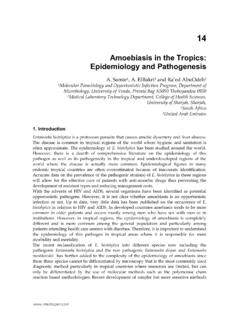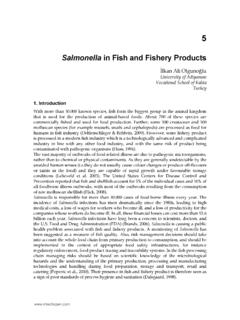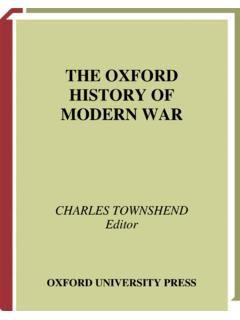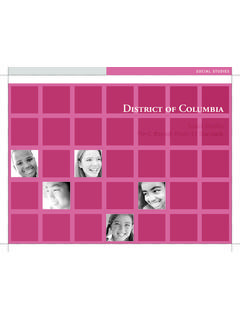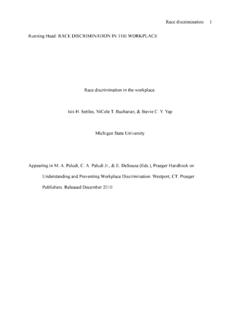Transcription of The Role and Importance of Cultural Tourism in Modern ...
1 10 The Role and Importance of Cultural Tourism in Modern Tourism Industry J nos Csap University of P cs, Institute of Geography Hungary 1. Introduction The main aim of this chapter is to thoroughly present the role and positions of Cultural Tourism , as one of Modern Tourism industry s most dynamically developing branch, in today s global Tourism market both from the theoretical and the practical point of view. With the definition of Cultural Tourism , we try to point at the complex problems of the term as it is proved to be a controversial issue in Tourism , since there is no adequate definition existing.
2 In the absence of a uniformly accepted definition, Cultural Tourism can be characterised both from the perspective of supply and demand and also from the point of view of theoretical and practical approach. We can state that Cultural Tourism is a very complex segment of the Tourism industry, its supply is diverse and versatile. The future positions of the discipline will probably be strengthened both directly and indirectly as with the change of the recreational needs the aim to get acquainted with the Cultural values is strongly increasing.
3 Mass Tourism though will of course never loose its positions, but tourists taking part in the supply of the 4S will become visitors with more diversified needs concerning Cultural interest. So apart from the theoretical discussion, the chapter aims to provide an insight into the Tourism segments and attraction structure of Cultural Tourism as well. 2. The problems and definition of the term culture and Cultural Tourism Defining the term culture To define Cultural Tourism first of all we have to determine the meaning of the term culture.
4 In this chapter we do not intend to investigate this very complex concept from different aspects and approaches or with a very detailed analysis but we wish to provide an insight and a starting point since we feel that the determination of the context provides us the basics for the researches on Cultural Tourism . So in this approach first of all we intend to highlight one of the first scholars who dealt with the identification of culture by providing a classic approach which is widely accepted in the scope of social sciences researchers.
5 According to TYLOR (1871) culture is that complex whole which includes knowledge, belief, art, morals, law, custom, and any other capabilities and habits acquired by man as a member of society (Tylor, 1871.) This definition seems to be a Strategies for Tourism Industry Micro and Macro Perspectives 202 favourable approach to our investigations as well since the determination can be used in a wide content opening the possibilities to the possible connection with other disciplines, and at the same time the definition is exact and concrete.
6 When analysing the meaning of culture we also would like to provide the approach and definition of the Webster s New Encyclopaedic Dictionary which states that culture is the characteristic features of a civilisation including its beliefs, its artistic and material products, and its social institutions. (Webster s New Encyclopaedic Dictionary, p. 244) On the other hand we also wish to explain that there is a strong and maybe ever lasting debate on the definition of this very complex term.
7 Anthropology originally stated that culture and cultures are unique bounded entities with limits and specific characteristics. Cultures were static, in that they could be captured by anthropological analyses. Their customs, habits, mores, relationships, uniquenesses could all be detailed, and in doing so, the ways in which each culture was separate from all others could be seen. ( ckenned1 ) On the other hand recent trends of the research on culture show that culture is not a bounded, unchanging entity.
8 Cultures are not separated from each other providing a chance to continuously interact and contact with each other. Of course this trend would also strongly determine the formation and development of Cultural Tourism as well. From the more recent perspective we intend to highlight the definition of HOFSTEDE (1997) who states that: Culture refers to the cumulative deposit of knowledge, experience, beliefs, values, attitudes, meanings, hierarchies, religion, notions of time, roles, spatial relations, concepts of the universe, and material objects and possessions acquired by a group of people in the course of generations through individual and group striving (Hofstede, 1997).
9 Fig. 1. Manifestation of Culture at Different Levels of Depth (HOFSTEDE 1997) The Role and Importance of Cultural Tourism in Modern Tourism Industry 203 According to HOFSTEDE (1997) the core of a culture is formed by the values (Figure 1.) which in terms of Tourism will be the basics for the attraction of a given destinations well. The different levels of culture will be the rituals, the heroes and the symbols of the given culture which again would serve as a basis for Tourism purpose travels.
10 We also agree with the definition of the Roshan Cultural Heritage Institute according to which Culture refers to the following Ways of Life, including but not limited to: Language: the oldest human institution and the most sophisticated medium of expression. Arts & Sciences: the most advanced and refined forms of human expression. Thought: the ways in which people perceive, interpret, and understand the world around them. Spirituality: the value system transmitted through generations for the inner well-being of human beings, expressed through language and actions.
